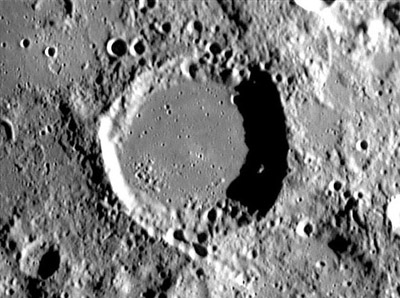Difference between revisions of "Abulfeda"
| (One intermediate revision by the same user not shown) | |||
| Line 6: | Line 6: | ||
|} | |} | ||
<div id="toc"> | <div id="toc"> | ||
| − | [[Image: | + | [[Image:Albufeda-Bruno.jpg|albufeda-Bruno.jpg]]<br /> ''Bruno Daversin. June 4, 2005. Ludiver Observatory''<br /> <br /> |
==Images== | ==Images== | ||
[http://www.lpod.org/coppermine/thumbnails.php?album=search&type=full&search=Abulfeda LPOD Photo Gallery] [http://www.lpi.usra.edu/resources/lunar_orbiter/bin/srch_nam.shtml?Abulfeda%7C0 Lunar Orbiter Images] [http://www.lpi.usra.edu/resources/apollo/search/feature/?feature=Abulfeda Apollo Images]<br /> | [http://www.lpod.org/coppermine/thumbnails.php?album=search&type=full&search=Abulfeda LPOD Photo Gallery] [http://www.lpi.usra.edu/resources/lunar_orbiter/bin/srch_nam.shtml?Abulfeda%7C0 Lunar Orbiter Images] [http://www.lpi.usra.edu/resources/apollo/search/feature/?feature=Abulfeda Apollo Images]<br /> | ||
| Line 18: | Line 18: | ||
<br /> | <br /> | ||
===Elger=== | ===Elger=== | ||
| − | ''([[IAU% | + | ''([[IAU%20directions|IAU Directions]])'' ABULFEDA.--A larger and more massive formation than [[Almanon|Almanon]], 39 miles in diameter, the W. wall rising about 10,000 feet above the interior, which is depressed more than 3,000 feet. It is continuous on the E., but much broken by transverse valleys on the S.W., and by little depressions on the N. On the S.W. originates the very curious bright crater-row which runs in a straight line to the N.E. wall of [[Almanon|Almanon]], crossing for the first few miles the lofty table-land lying on the S.W. side of the border. With the exception of a low central mountain, the interior of Abulfeda contains no visible detail. The rampart is finely terraced on the W. and E. The W. <u>glacis</u> is very rugged.<br /> <br /> |
===Wikipedia=== | ===Wikipedia=== | ||
[http://en.wikipedia.org/wiki/Abulfeda_(crater) Abulfeda]<br /> <br /> | [http://en.wikipedia.org/wiki/Abulfeda_(crater) Abulfeda]<br /> <br /> | ||
| Line 24: | Line 24: | ||
* IAU page: [http://planetarynames.wr.usgs.gov/Feature/23 Abulfeda] | * IAU page: [http://planetarynames.wr.usgs.gov/Feature/23 Abulfeda] | ||
| − | * Depth data from [[Kurt%20Fisher% | + | * Depth data from [[Kurt%20Fisher%20Crater%20Depths|Kurt Fisher database]] |
** Arthur, 1974: 1.23 km | ** Arthur, 1974: 1.23 km | ||
** Westfall, 2000: 1.23 km | ** Westfall, 2000: 1.23 km | ||
Latest revision as of 19:33, 15 April 2018
Contents
Abulfeda
|
Lat: 13.87°S, Long: 13.9°E, Diam: 62.23 km, Depth: 1.23 km, Rükl: 45, Nectarian |

Bruno Daversin. June 4, 2005. Ludiver Observatory
Images
LPOD Photo Gallery Lunar Orbiter Images Apollo Images
- Lunar Orbiter 5's Frame 084 is an interesting close-up of Abulfeda's southern half and the adjacent northern part of Catena Abulfeda.
- Abulfeda E, a bright high-albedo craterlet west-southwest of Abulfeda itself, was captured on several frames of the southward-looking mapping/metric Fairchild camera of Apollo 16. The last ones of the series which show Abulfeda E have also captured the reflected light on the eastern shadowed inner slopes of that craterlet. The Arizona State University's zoomify-scan of frame AS16-M-0708 shows Abulfeda E very near the lower right corner of the photograph. The large crater in the foreground is Albategnius. To get a good view of the reflected light on Abulfeda E's shadowed eastern inner slopes, one should explore the maximum zoom of this craterlet!
- Research Lunar Orbiter 5 and Apollo 16 photography: Danny Caes
Maps
(LAC zone 78D4) LAC map Geologic map LM map
Description
Elger
(IAU Directions) ABULFEDA.--A larger and more massive formation than Almanon, 39 miles in diameter, the W. wall rising about 10,000 feet above the interior, which is depressed more than 3,000 feet. It is continuous on the E., but much broken by transverse valleys on the S.W., and by little depressions on the N. On the S.W. originates the very curious bright crater-row which runs in a straight line to the N.E. wall of Almanon, crossing for the first few miles the lofty table-land lying on the S.W. side of the border. With the exception of a low central mountain, the interior of Abulfeda contains no visible detail. The rampart is finely terraced on the W. and E. The W. glacis is very rugged.
Wikipedia
Additional Information
- IAU page: Abulfeda
- Depth data from Kurt Fisher database
- Arthur, 1974: 1.23 km
- Westfall, 2000: 1.23 km
- Viscardy, 1985: 3.11 km
- Cherrington, 1969: 3.2 km
- Nearby is the Abulfeda crater chain, thought to have formed from impacts of a disrupted comet. - tychocrater Jun 23, 2007
- Satellite craters Abulfeda E, O and R are on the ALPO list of bright ray craters
- Satellite craters Abulfeda A, F and M are on the ALPO list of banded craters
- Abulfeda C & R are thermal anomaly craters, implying youthful ages - Moore et al, 1980
Nomenclature
- Named for Abu al-Fida or Abul Fida Ismail ibn Kathir (fully Abu Al-fida' Isma'il Ibn Kathir 'imad Ad-din; also transliterated Abulfeda, Abu Alfida, and other ways) (1301 - 1373), a Syrian historian and mufassir.
LPOD Articles
A Very Good Humility Lesson Not Quite A Rille Boo! (Really Bu!)
LROC Articles
Bibliography
- Hill, Harold. 1991. A Portfolio of Lunar Drawings, pages 178, 179 (last stages of illumination on Geber, Almanon, and Abulfeda).
Named Features -- Prev: Abul Wáfa -- Next: Catena Abulfeda